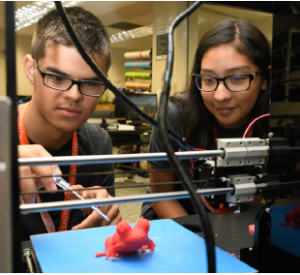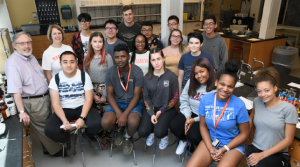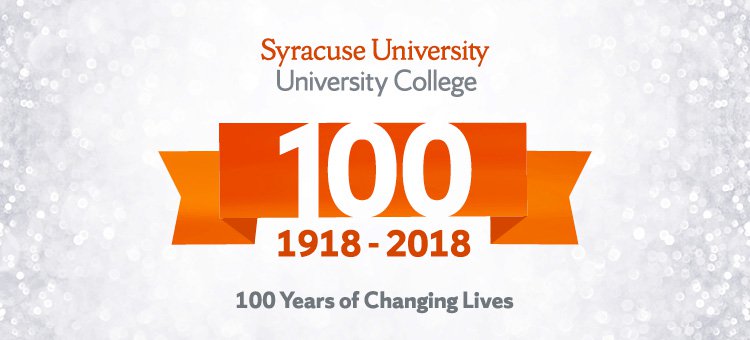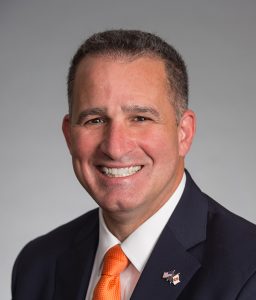The marketing team that promotes University College of Syracuse University has won a bronze award in the 2018 University Professional Continuing Education Association’s (UPCEA) Marketing Awards Competition. The awards recognize the best marketing practices and promotional pieces in the field of professional, continuing and online education.
University College’s 100th-Anniversary advertising campaign took bronze in the Interactive Media category. It recognizes the significant achievements of SU’s division of part-time studies, which is celebrating its 100th year of creating opportunities for nontraditional students. The award will be presented at UPCEA’s Annual Marketing and Enrollment Management Seminar in November.
UC was recognized for a multifaceted interactive media campaign that used testimonial-driven promotions to showcase UC’s impact on the lives of part-time students. A testimonial wall installation in the UC lobby at 700 University Ave. features the words of many students and faculty, past and present. A four-minute video features UC alumni sharing individual stories of perseverance, achievement and triumph during their journey to an SU degree, which they all achieved as nontraditional students juggling numerous real-life responsibilities. The video was featured at a gala celebration held on campus Oct. 6 as a fundraiser for the newly established Centennial Scholarship for part-time students.
UPCEA is the leading association for professional, continuing and online education. Founded in 1915, UPCEA now serves most of the leading public and private colleges and universities in North America. It provides innovative conferences and specialty seminars, research and benchmarking information, professional networking and timely publications.
University College has been providing access to Syracuse University academic programs and support services to diverse part-time student populations since 1918.




 100 years of changing lives is worth celebrating, and we plan to do that in a big way at University College’s 100th Anniversary Gala. The event will take place on Saturday, October 6, 2018 in Schine Student Center, 303 University Place. It will feature a cocktail hour, followed by dinner and dancing to the music of Prime Time.
100 years of changing lives is worth celebrating, and we plan to do that in a big way at University College’s 100th Anniversary Gala. The event will take place on Saturday, October 6, 2018 in Schine Student Center, 303 University Place. It will feature a cocktail hour, followed by dinner and dancing to the music of Prime Time. I believe in trying. I’m a first-generation college graduate. I was an average student in high school, but my guidance counselor felt compelled to tell me, “College isn’t for people like you.” His actual words. Undeterred, I was admitted to a school, took out loans and applied for Pell grants. I left campus after the spring semester with a 1.8 GPA. Maybe college wasn’t for people like me.
I believe in trying. I’m a first-generation college graduate. I was an average student in high school, but my guidance counselor felt compelled to tell me, “College isn’t for people like you.” His actual words. Undeterred, I was admitted to a school, took out loans and applied for Pell grants. I left campus after the spring semester with a 1.8 GPA. Maybe college wasn’t for people like me.